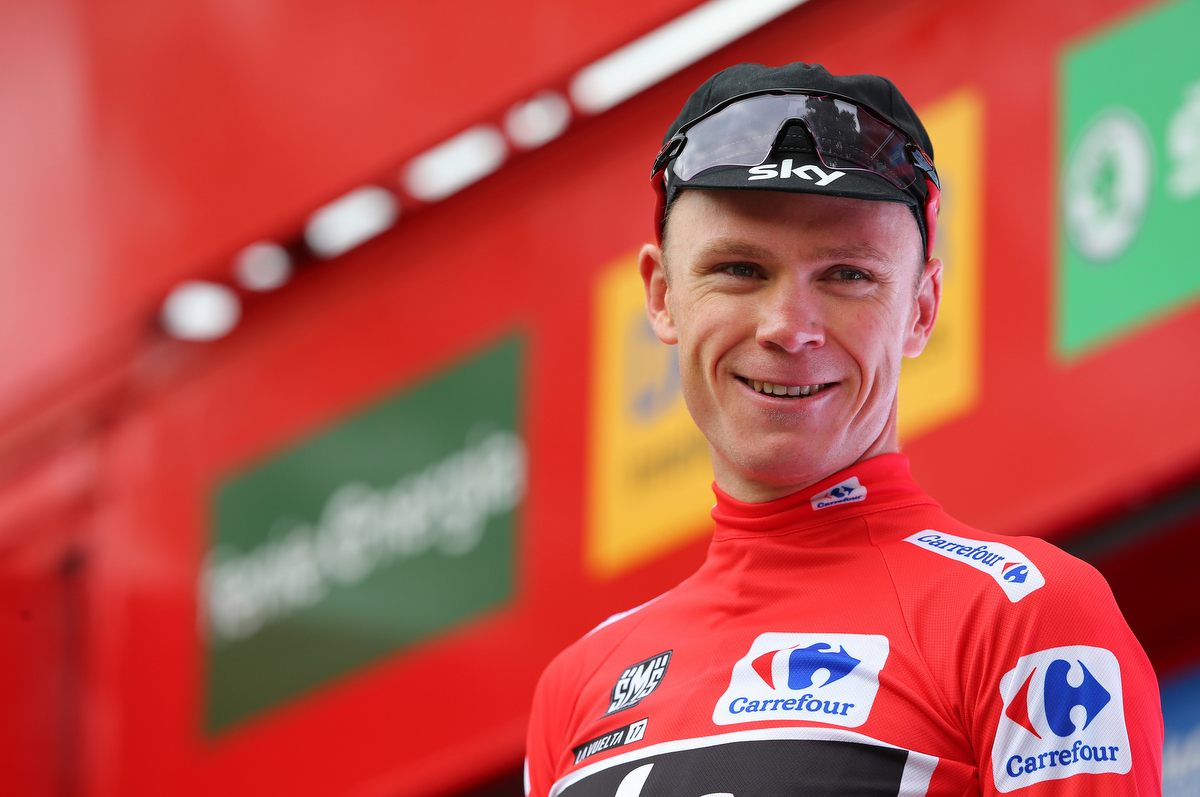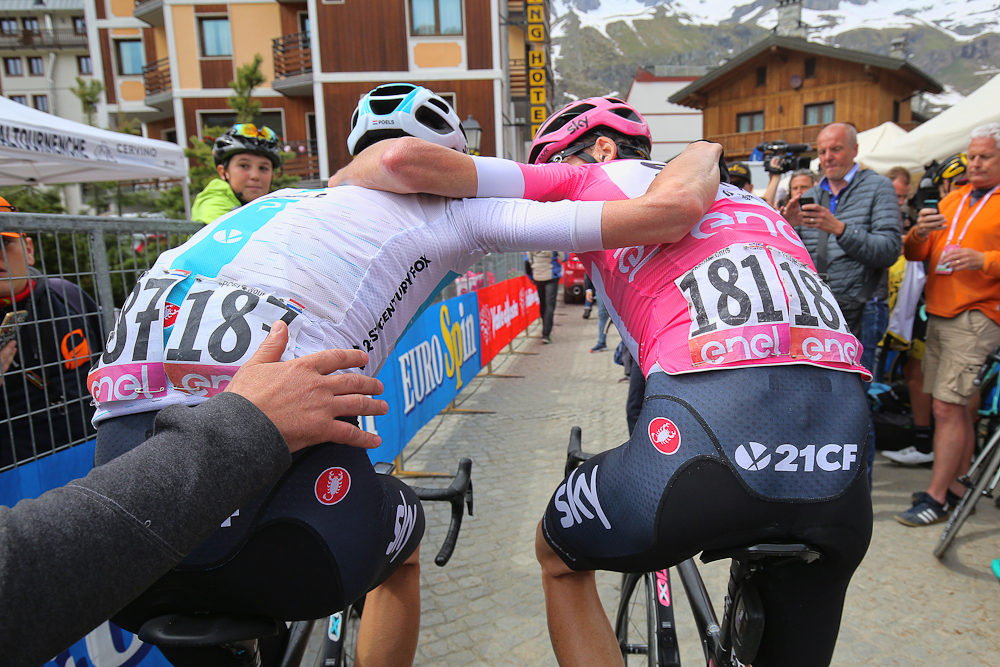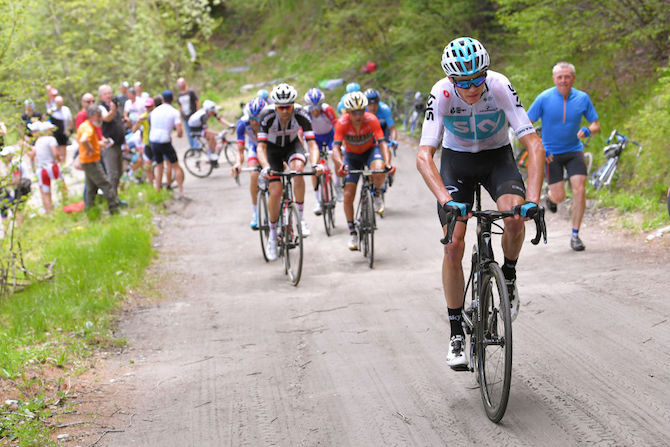Clearing Chris Froome lacks credibility without providing evidence, says anti-doping expert
'It’s a bad record that keeps being played’ says Parisotto




A leading anti-doping expert has questioned the UCI's decision to drop proceedings against Chris Froome, labelling it as being without credibility unless a full report into their findings is published.
Froome was cleared by the UCI on Monday, bringing to an end a near 10-month saga that began on stage 18 of the 2017 Vuelta a Espana, when the Team Sky rider returned an adverse analytical finding for salbutamol. Froome's urine sample contained twice WADA's threshold limit for the controlled asthma drug, but despite his legal team lodging a 1,500-page report as part of his defence, no facts or evidence relating to the case have been released.
In a statement published on Monday morning, the UCI merely said that "in light of WADA's unparalleled access to information and authorship of the salbutamol regime, the UCI has decided, based on WADA's position, to close the proceedings against Mr Froome."
The statement rather naively finished with the following line: "The UCI hopes that the cycling world can now turn its focus to, and enjoy, the upcoming races on the cycling calendar."
Robin Parisotto is a leading anti-doping expert and previously worked as part of the Cycling Anti-Doping Foundation's Biological Passport programme, which tested professional cyclists. He has previously voiced concerns over the integrity of anti-doping bodies such as WADA and he believes that the decision to clear Froome without providing any evidence lacks credibility and only undermines the sport of cycling.
"I'm quite bemused and it's hard to comprehend how a salbutamol level that high could not constitute an AAF," Parisotto told Cyclingnews from his home in Australia.
"It's now about having full access to the reasoned decision as it's hard to comment without it. This is a case where they need to release the report in order to silence the agitators. I'm bamboozled to be honest.
Get The Leadout Newsletter
The latest race content, interviews, features, reviews and expert buying guides, direct to your inbox!
"My views on WADA have been jaundiced by the role that they played in the IAAF scandal and how they handled that. This result today is probably just the cherry on top. This is another high-profile case where the outcome has not been handled or managed very well because 24 hours ago the ASO gave Froome the finger and now the UCI has said 'bugger everyone, he's racing.'"
Froome's defence appears to have rested on a 1,500-page reported that was submitted to WADA earlier this year.
With no public explanation as to why a rider could returned double the permitted levels of salbutamol and not face a sanction, even experts of Parisotto's stature can only guess as to how and why WADA reached their conclusion.
"There would have to be some kind of physiological explanation," Parisotto said.
"Until that's articulated that would be my assumption for the increased levels. It could be down to the administration but how would you explain that away? Then there are the usual suspects, such as the test was incorrect or there was something wrong with the collection of the sample or the testing process."
Team Sky manager Dave Brailsford quickly jumped to the support of his team leader when the UCI statement was released. However, as with the UCI, Team Sky would not elaborate on the reasons as to why Froome was cleared. There were a lot of words, but transparency and clarity were once again missing.
"Chris's elevated salbutamol urine reading from Stage 18 of the Vuelta was treated as a 'presumed' Adverse Analytical Finding (AAF) by the UCI and WADA, which triggered a requirement for us to provide further information. After a comprehensive review of that information, relevant data and scientific research, the UCI and WADA have concluded that there was, in fact, no AAF and that no rule has been broken," Brailsford said.
"We said at the outset that there are complex medical and physiological issues which affect the metabolism and excretion of salbutamol. The same individual can exhibit significant variations in test results taken over multiple days while using exactly the same amount of salbutamol. This means that the level of salbutamol in a single urine sample, alone, is not a reliable indicator of the amount inhaled. A review of all Chris's 21 test results from the Vuelta revealed that the Stage 18 result was within his expected range of variation and therefore consistent with him having taken a permitted dose of salbutamol."
The decision to clear Froome now leaves WADA open to criticism and possible changes to their own rules. Riders Diego Ulissi and Alessandro Petacchi were both handed bans for returning lower salbutamol readings than Froome, so without a full and detailed report into why Froome was cleared, the anti-doping authorities, in Parisotto's opinion, have created a new series of problems for themselves.
"There are quite a few issues now that have been opened up. This is a real can of worms. It makes a mockery of WADA's threshold limits of salbutamol and more so because other athletes have been banned with lesser levels in the urine. So, does WADA's position on salbutamol need revising and if so why? There are so many questions that have been opened up now. This absolutely harms the credibility of WADA and the UCI. My own personal opinion is that this won't ever be fixed until I and the public see this report."
The larger picture for Parisotto, however, is one that encompasses more than just one athlete and one cleared AAF. According to the Australian, sport as a whole has a major problem with how it treats the world of anti-doping and how major cases are handled.
"The major sporting organisations, WADA, the IAAF, FIFA… it's a bad record that keeps being played because whenever they're faced with major scandals it's more a case of management to minimize the fallout and bad exposure. They don't think about hitting the problem head-on and telling the cheats that they mean business," he said.
"I don't know if it's a case of whether some athletes have become too big to fail or the sporting organisations are timid in trying to challenge their cases for fear of losing face or finances, but at this point in time it seems that if you have the wherewithal, the resources and the level of exposure then you can challenge any decision at the moment and get away with it."
Daniel Benson was the Editor in Chief at Cyclingnews.com between 2008 and 2022. Based in the UK, he joined the Cyclingnews team in 2008 as the site's first UK-based Managing Editor. In that time, he reported on over a dozen editions of the Tour de France, several World Championships, the Tour Down Under, Spring Classics, and the London 2012 Olympic Games. With the help of the excellent editorial team, he ran the coverage on Cyclingnews and has interviewed leading figures in the sport including UCI Presidents and Tour de France winners.
